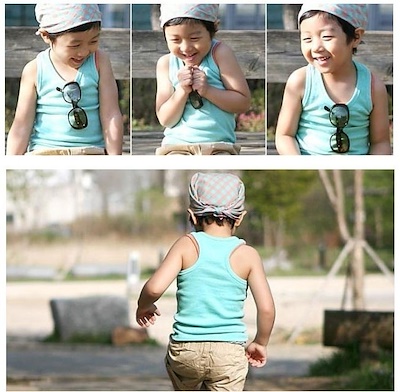Why do Kids lie?
Why do kids lie?
The most common conceptions out there are that kids lie in order to avoid an unpleasant consequence or to escape an uncomfortable situation that they have found themselves in. Apart from these common motivations, there exists other rationale for why kids would choose to intentionally lie, or mask the truths. After extensive research, I have acquired some relevant and excellent examples from Matthew Rouse, PhD, a clinical psychologist at the Child Mind Institute.
In this article, I will first provide a number of prominent reasons as to why children or kids are inclined to lie. Then I will be touching on some plausible methods that can deter potentially deter children from lying. Last but not least, we will move on to a list of counter-productive mistakes that are often committed by overzealous parents.
To improve their self-esteem and gain approval from others
Children whom lack self-confidence may brag incessantly and tell elaborate lies to make themselves seem more impressive, unique or gifted in order to inflate their egos while making themselves the center of attention. Dr. Rouse raised the case study of an eighth-grader who was exaggerating wildly about 80 percent of the time: “They were kind of incredible experiences that weren’t within the bounds of plausible at all.” For example, the boy would claim that he’d gone to a party and everyone had started to chant for him the moment he walked through the door.
Taking away focus from themselves
Children suffering from mental disabilities such as depression or anxiety may resort to lying about their symptoms in order to remove attention from themselves. Alternatively, they might play down the true significance of their issues, saying something like “No, no I slept fine last night” because they do not want to trouble others with their problems.
White Lies
To further complicate matters, parents might teach their children that it is morally upright for them to lie if it meant sparing the feelings of someone else. In this case, there might be misunderstandings and children may learn the wrong lessons- such as lying is often permissible.
Methods to deter children from lying
Acknowledge and appreciate their honestly
In a situation where lying seems to be easier, parents should praise their children for telling the truth if it does so. Emphasizing on an improved relationship and other possible rewards would
In this situation, where lying would have been easier, when parents are doling out the consequence they can also praise the child for telling the truth and tell them it makes them more trustworthy. Parents may also reduce the punishment if a child confesses the truth, such as grounding them for a day instead of a week. However, it is imperative that children and teenagers should not manipulate their parents into rewarding them simply for telling the truth as that just illustrates that their children are not genuine. If a parent detects that his/her child is abusing honesty as a tool for them to reap rewards or get off easy, the parents should not give in any longer.
Reinforce unconditional love
Parents may encourage kids to tell the truth by constantly reminding them that they do not need perfection and that making mistakes is only human and thus forgivable. If kids realise that their parents will not punish them for their mistakes, they will be more inclined to share their honest feelings.
What parents sh
Why do kids lie?
The most common conceptions out there are that kids lie in order to avoid an unpleasant consequence or to escape an uncomfortable situation that they have found themselves in. Apart from these common motivations, there exists other rationale for why kids would choose to intentionally lie, or mask the truths. After extensive research, we have acquired some relevant and excellent examples from Matthew Rouse, PhD, a clinical psychologist at the Child Mind Institute.
In this article, I will first provide a number of prominent reasons as to why children or kids are inclined to lie. Then I will be touching on some plausible methods that can deter potentially deter children from lying. Last but not least, we will move on to a list of counter-productive mistakes that are often committed by overzealous parents.
To improve their self-esteem and gain approval from others
Children whom lack self-confidence may brag incessantly and tell elaborate lies to make themselves seem more impressive, unique or gifted in order to inflate their egos while making themselves the center of attention. Dr. Rouse raised the case study of an eighth-grader who was exaggerating wildly about 80 percent of the time: “They were kind of incredible experiences that weren’t within the bounds of plausible at all.” For example, the boy would claim that he’d gone to a party and everyone had started to chant for him the moment he walked through the door.
Taking away focus from themselves
Children suffering from mental disabilities such as depression or anxiety may resort to lying about their symptoms in order to remove attention from themselves. Alternatively, they might play down the true significance of their issues, saying something like “No, no I slept fine last night” because they do not want to trouble others with their problems.
White Lies
To further complicate matters, parents might teach their children that it is morally upright for them to lie if it meant sparing the feelings of someone else. In this case, there might be misunderstandings and children may learn the wrong lessons- such as lying is often permissible.
Methods to deter children from lying
Acknowledge and appreciate their honestly
In a situation where lying seems to be easier, parents should praise their children for telling the truth if it does so. Emphasizing on an improved relationship and other possible rewards would
In this situation, where lying would have been easier, when parents are doling out the consequence they can also praise the child for telling the truth and tell them it makes them more trustworthy. Parents may also reduce the punishment if a child confesses the truth, such as grounding them for a day instead of a week. However, it is imperative that children and teenagers should not manipulate their parents into rewarding them simply for telling the truth as that just illustrates that their children are not genuine. If a parent detects that his/her child is abusing honesty as a tool for them to reap rewards or get off easy, the parents should not give in any longer.
Reinforce unconditional love
Parents may encourage kids to tell the truth by constantly reminding them that they do not need perfection and that making mistakes is only human and thus forgivable. If kids realise that their parents will not punish them for their mistakes, they will be more inclined to share their honest feelings.
What parents should refrain from doing
Don’t corner your child
Putting a child on the spot can set him up to lie. If parents are aware of the whole story, they should probably cut right to the issue and discuss it. For example, instead of asking your child if he didn’t eat his vegetables, a better alternative could be that the parent simply acknowledging upright that the child threw away his vegetables. Then, instead of a harsh scolding, the parents could give the child a firm but neutral lesson on why vegetables are highly beneficial for their health and growth.
Do not accuse or label your child as a liar
It’s a bad idea to label your child as a liar as it leaves emotional scars on him/her. The subsequent wounds it inflicts on the child are more significant than dealing with what he lied about in the first place. He thinks, “Mom won’t believe me.” It makes him doubt his parents’ trust in him, thus inciting him to continue lying as he believes that they will not trust him anyway even if he said the truth.
Do not be too complicated in your messages
Lecturing your children for excessive periods of time will result in them simply tuning you out. This is especially so if they have heard the same lectures numerous times. Parents should also hear their child’s rationale for lying and their side of the argument before jumping to any conclusions. Most importantly, the parent’s intervention has to be direct and succinct
It takes a village to raise a child !
Join our WhatsApp Groups or Facebook Group to interact with parents about infant care/child care in Singapore..











